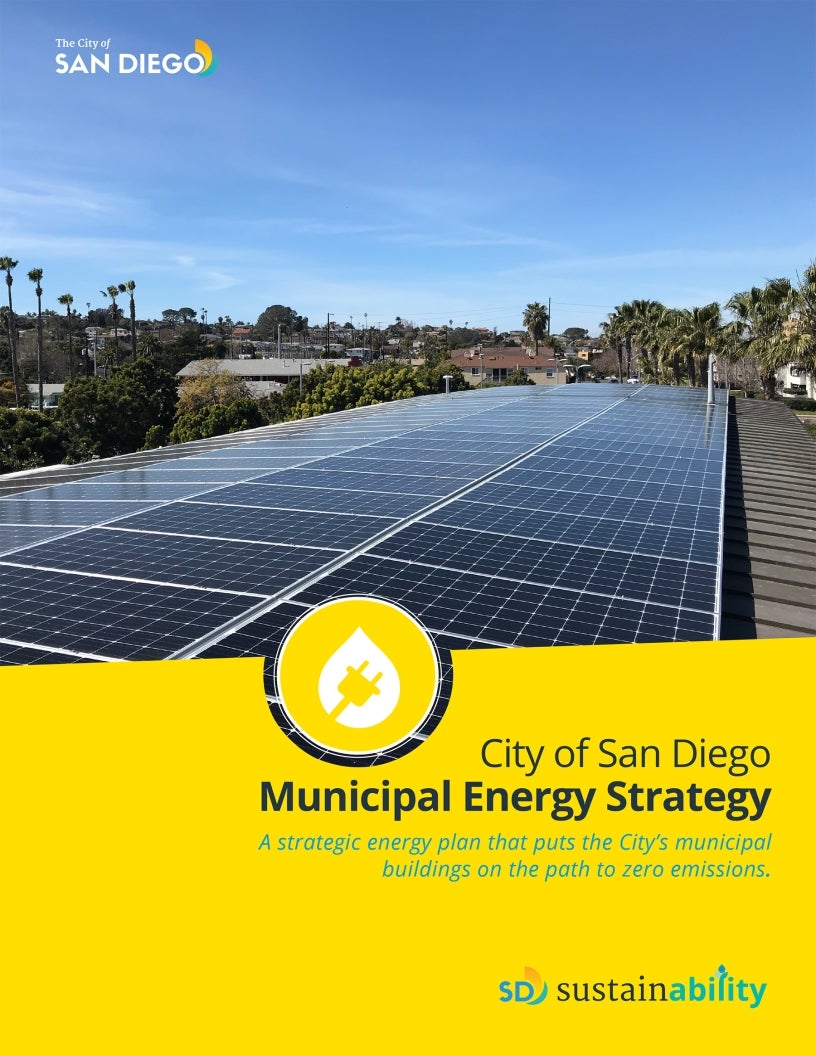Municipal Energy Strategy and Implementation Plan
 The City of San Diego's updated Climate Action Plan (CAP), adopted in 2022, establishes zero-emissions targets for municipal facilities and operations. The 2022 CAP includes measure 1.3, Decarbonize City Facilities, and measure 2.2, Increase Municipal Zero Emission Vehicles. To meet these goals, action must be taken to reduce municipal building emissions alongside our residents and businesses. The City of San Diego’s municipal building portfolio presents significant opportunities to reduce carbon pollution and maximize the City’s climate action efforts.
The City of San Diego's updated Climate Action Plan (CAP), adopted in 2022, establishes zero-emissions targets for municipal facilities and operations. The 2022 CAP includes measure 1.3, Decarbonize City Facilities, and measure 2.2, Increase Municipal Zero Emission Vehicles. To meet these goals, action must be taken to reduce municipal building emissions alongside our residents and businesses. The City of San Diego’s municipal building portfolio presents significant opportunities to reduce carbon pollution and maximize the City’s climate action efforts.
The Municipal Energy Strategy demonstrates the City of San Diego's commitment to leading locally, nationally and globally by advancing projects and policies for City buildings that help mitigate the causes of climate change.
Building on the MES, the City of San Diego Municipal Energy Implementation Plan (the Plan) provides more detail on the current energy performance of City facilities, along with planned and proposed energy projects and their associated impacts on energy performance and the established zero-emissions targets. The Plan identifies specific policies, priorities and programs to be pursued by City staff and stakeholders.
Implementation of these strategies will increase the City’s resiliency in the face of climate-driven disruptions, advance climate equity through environmental stewardship and push the City’s building portfolio toward the goal of zero emissions by 2035. The MES and the Plan will be updated periodically to reflect changing variables in the rapidly evolving clean-energy landscape.
In October 2022, the City Council adopted the Zero Emissions Municipal Buildings & Operations Policy (ZEMBOP), which establishes an implementing framework to ensure the City leads by example in decarbonizing the municipal building sector and transitioning to a zero-emissions fleet by 2035. Goals will be achieved by prioritizing proven energy efficiency strategies, eliminating the use of non-emergency fossil fuel systems, requiring electric vehicle charging, and requiring the generation or procurement of renewable or zero-carbon energy to power municipal building operations.

